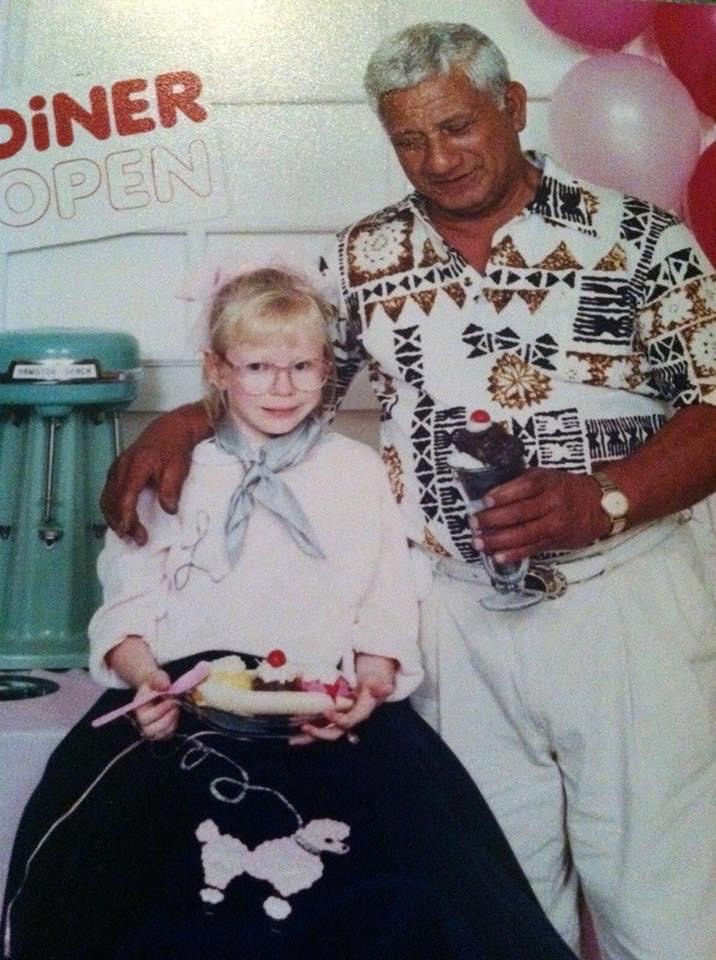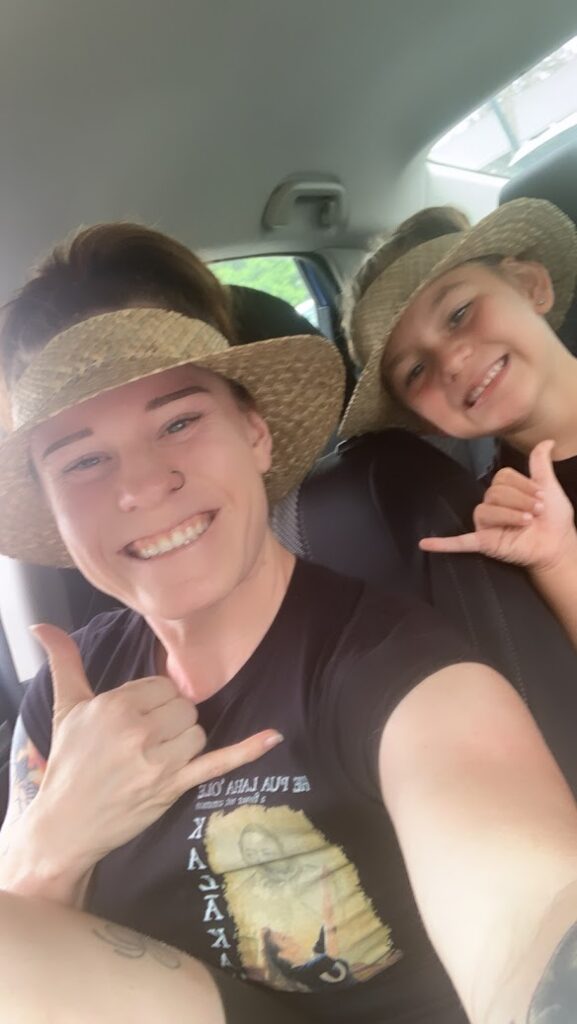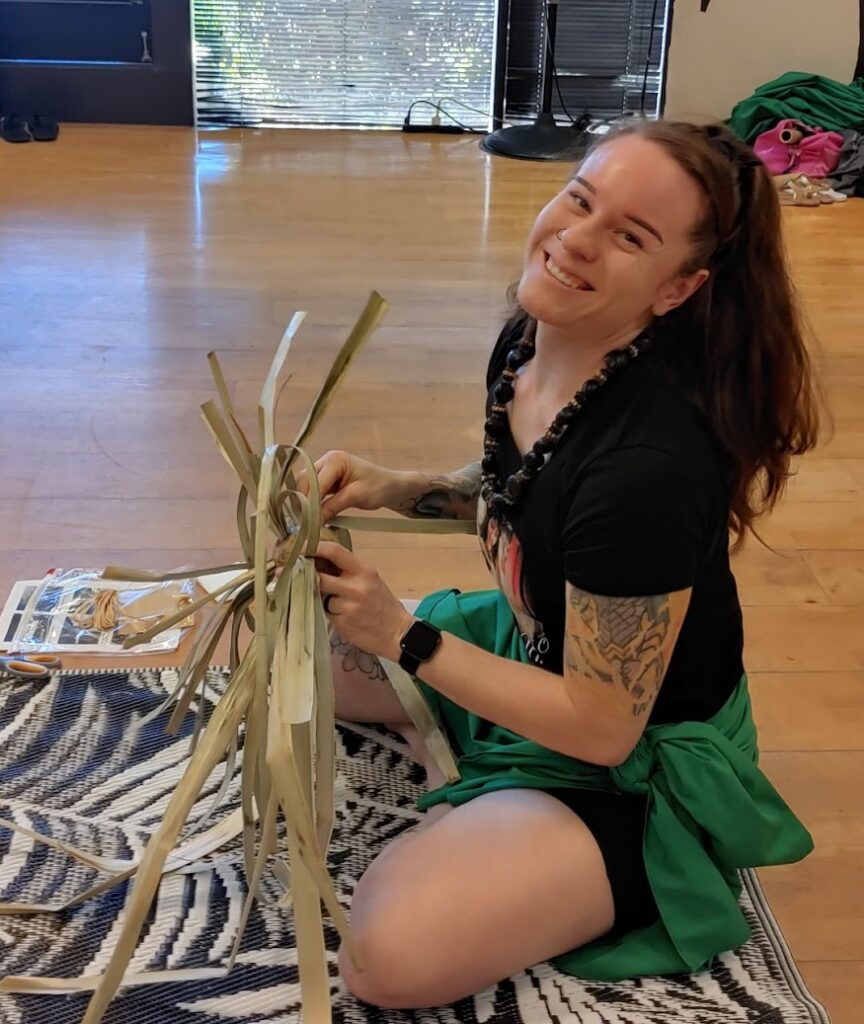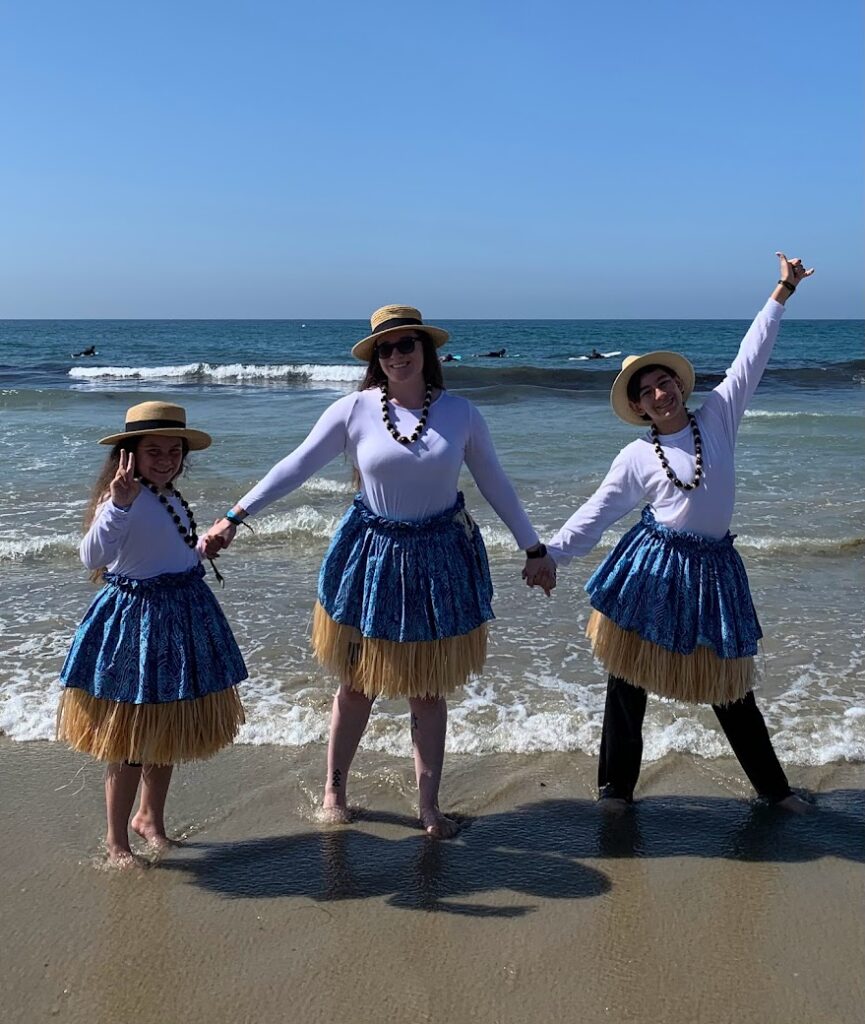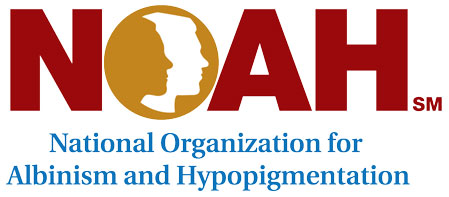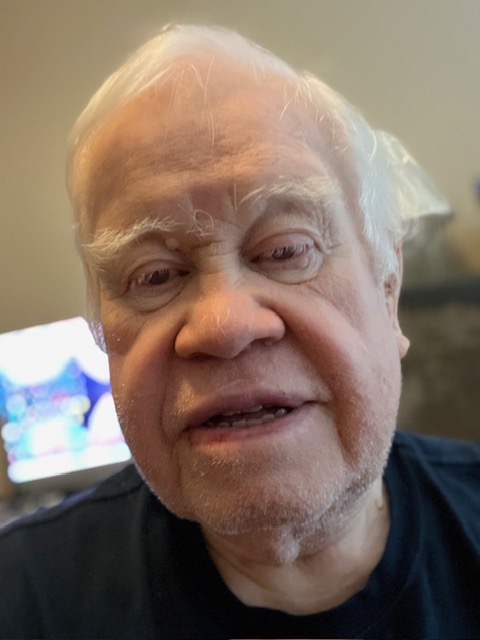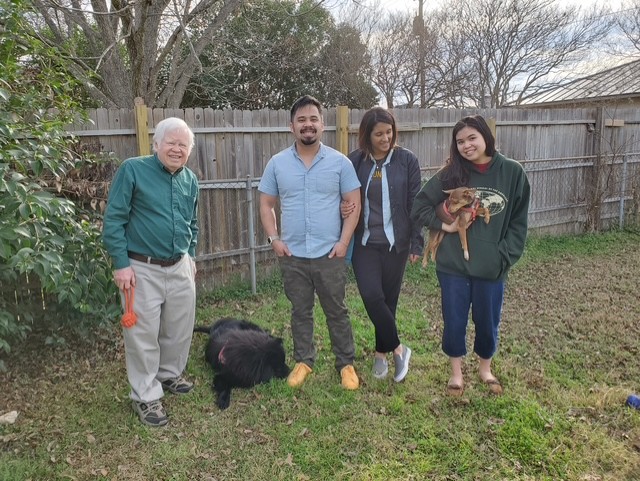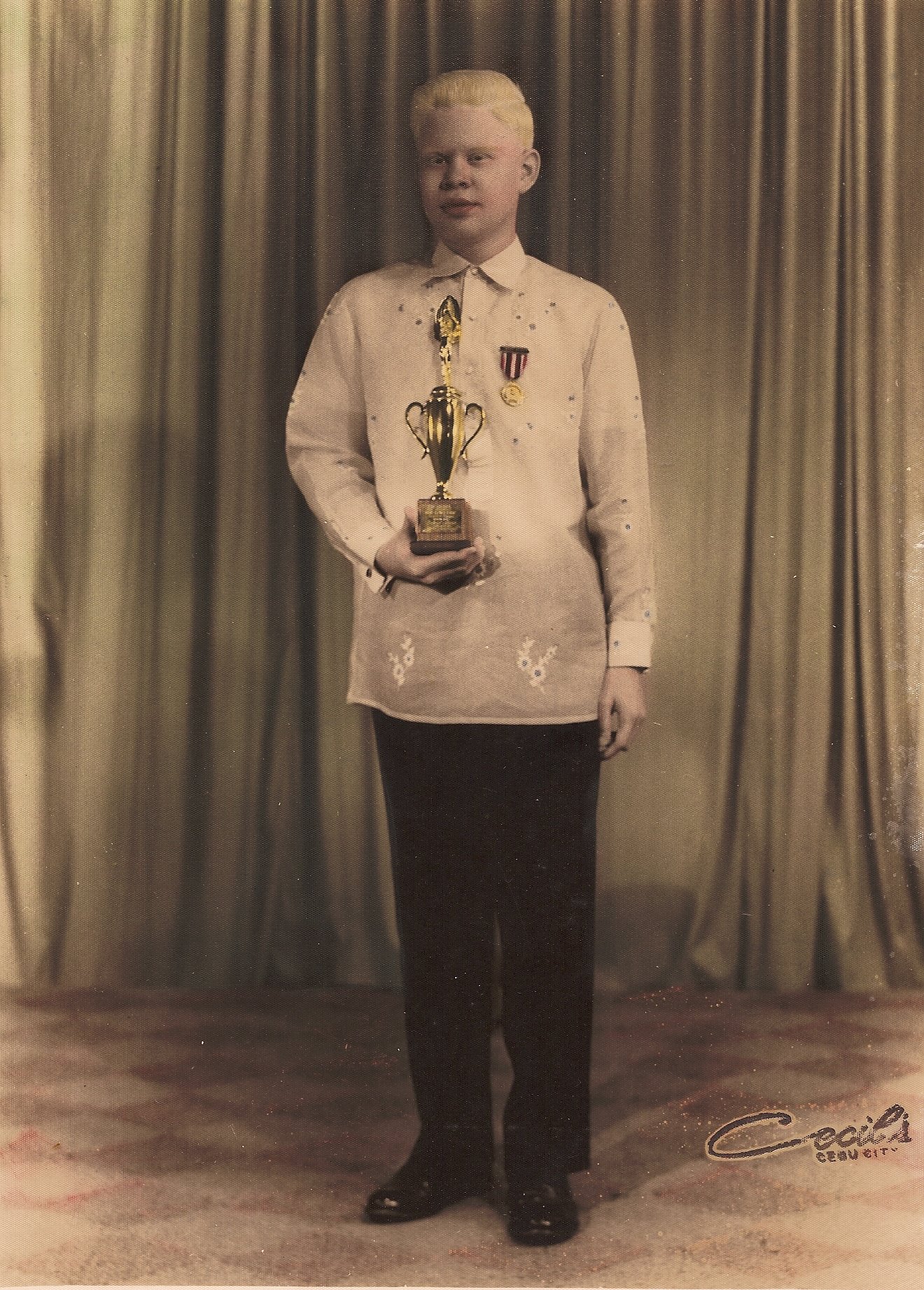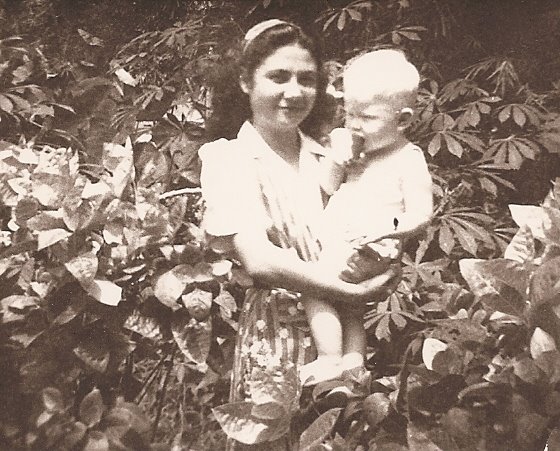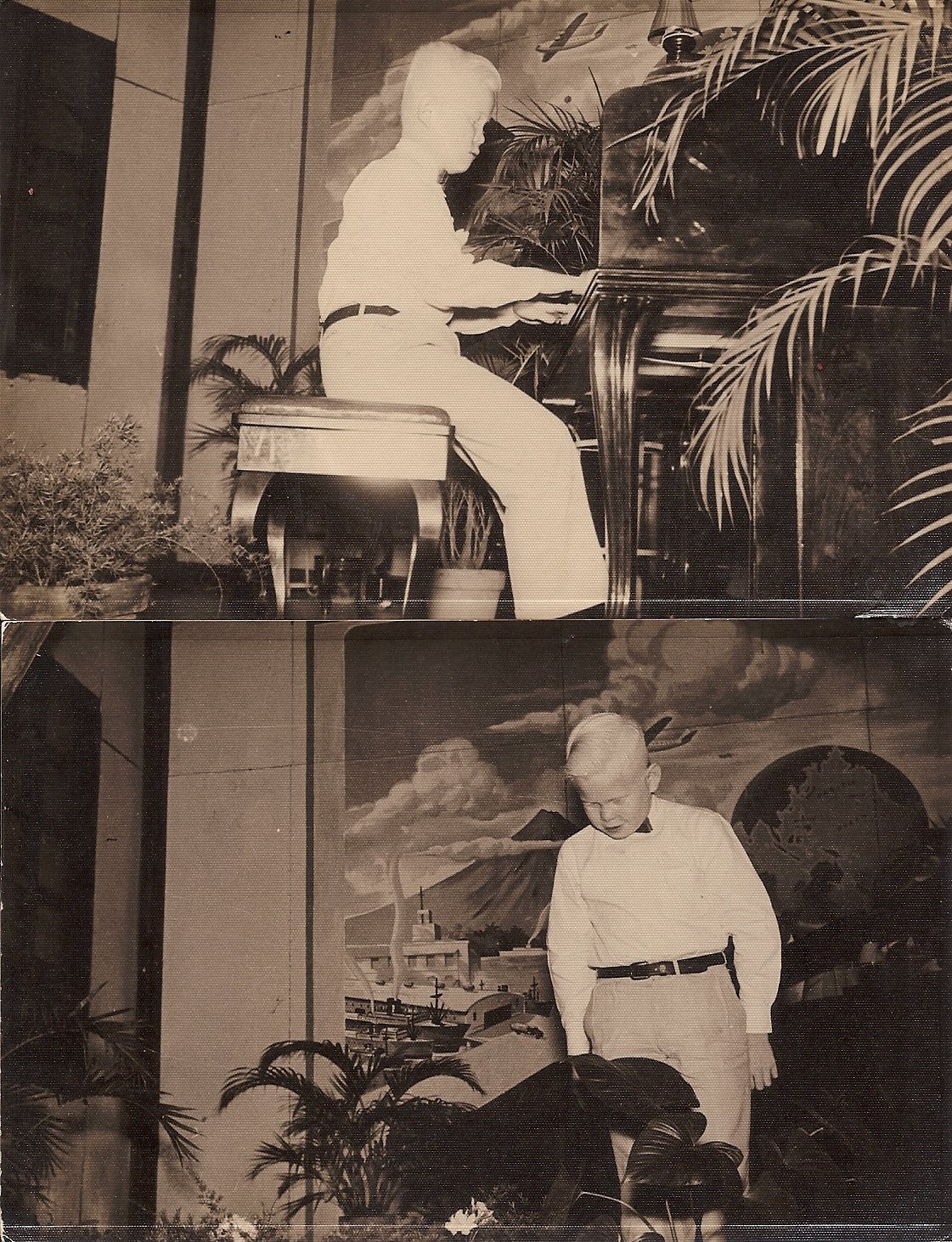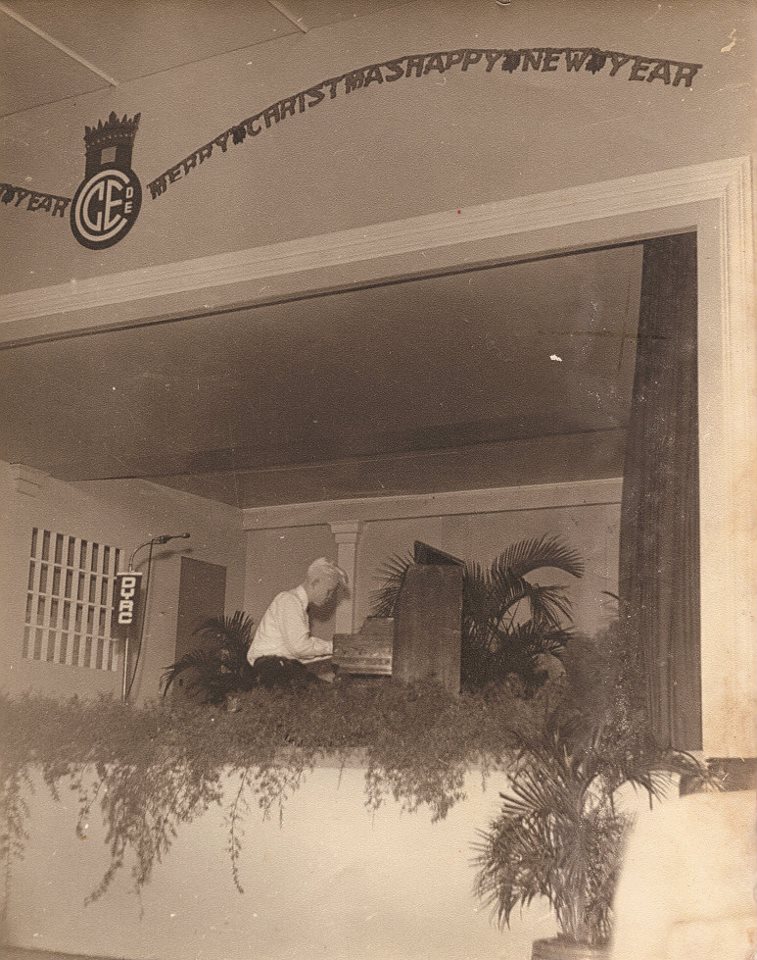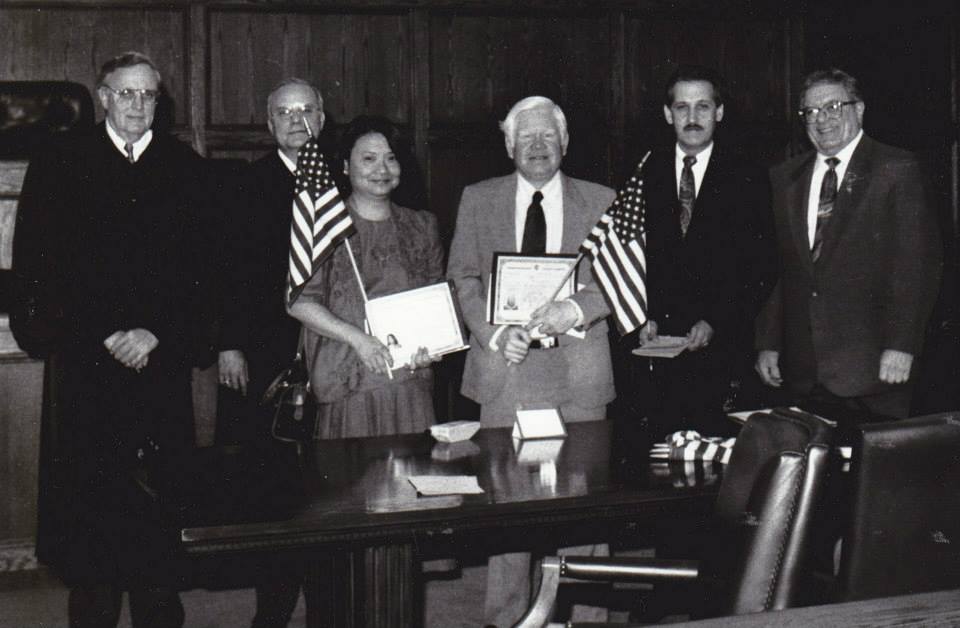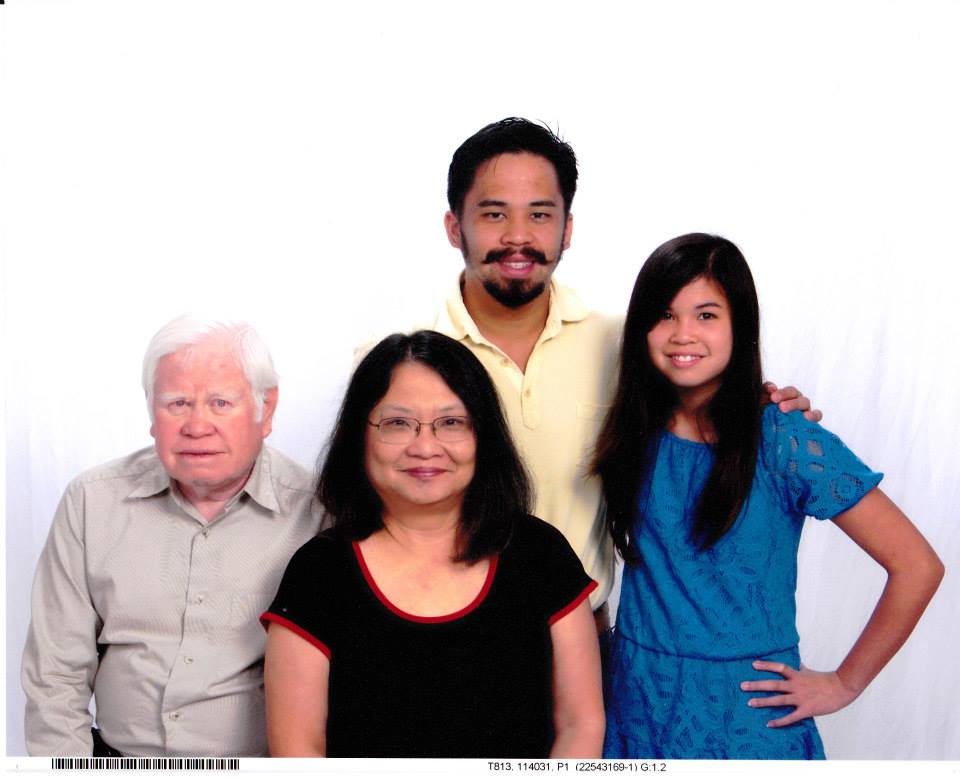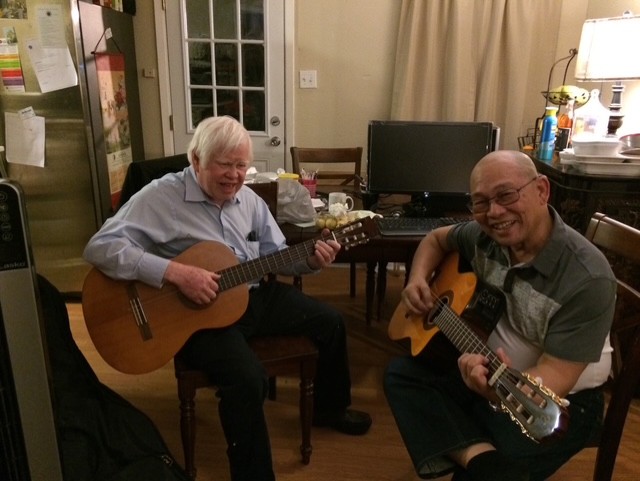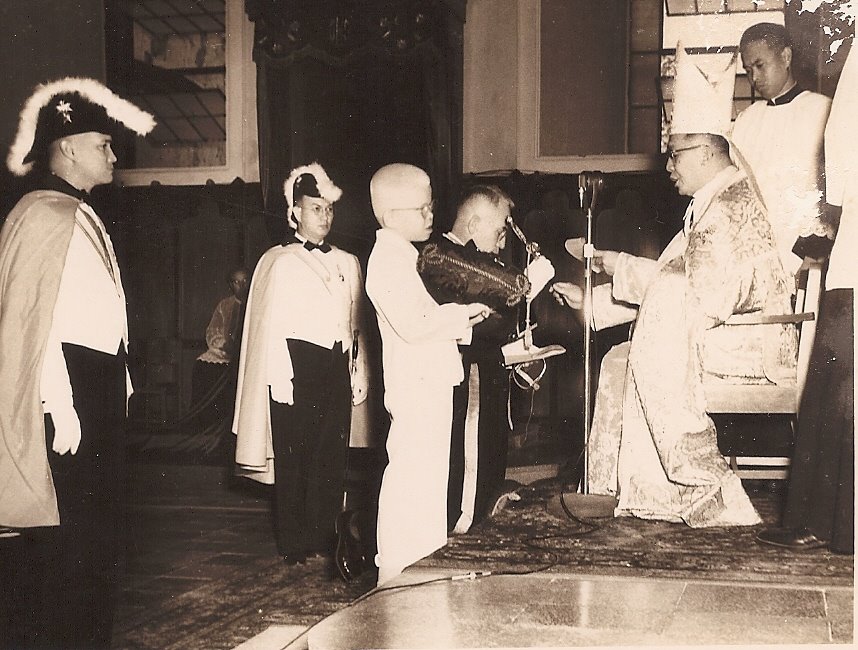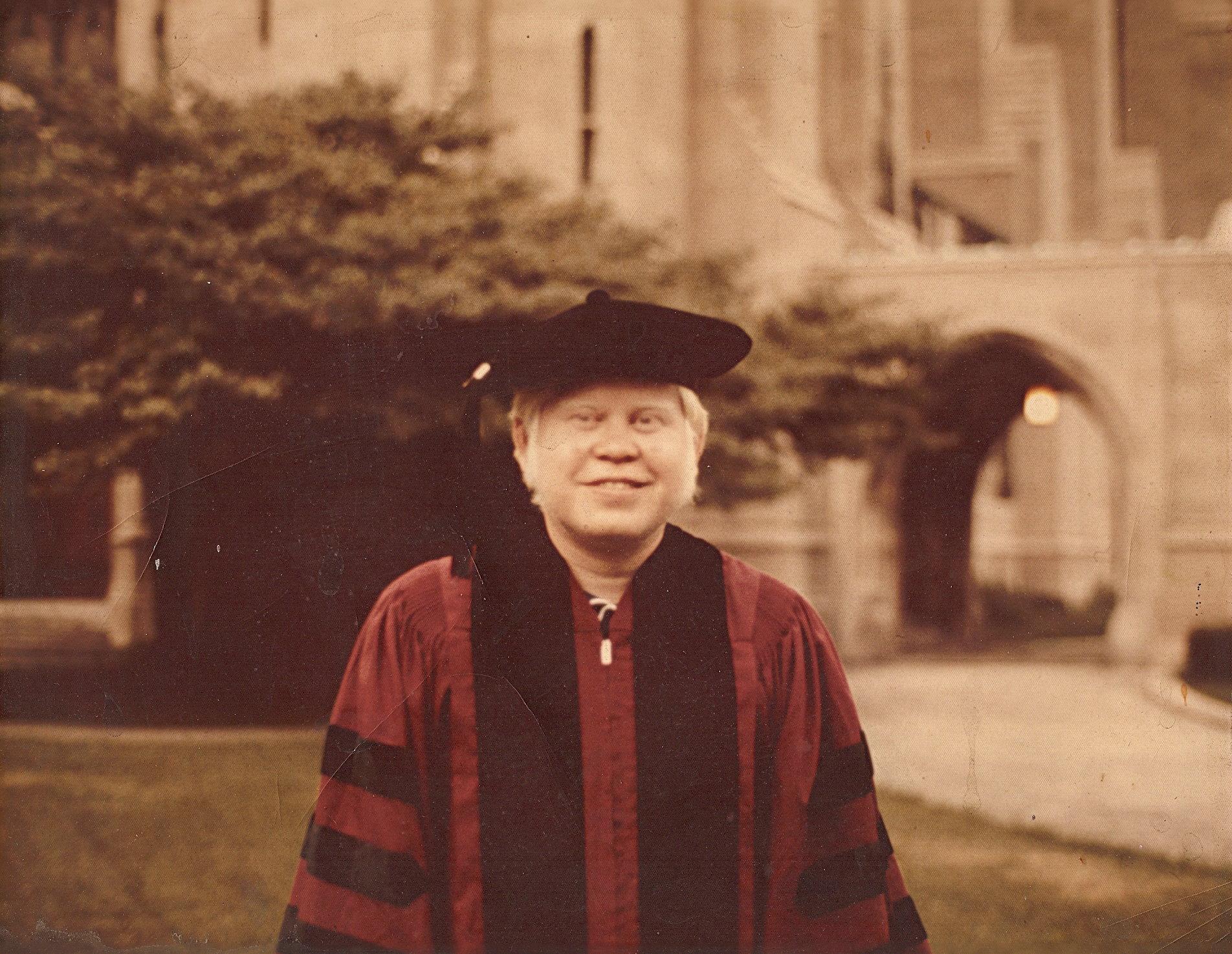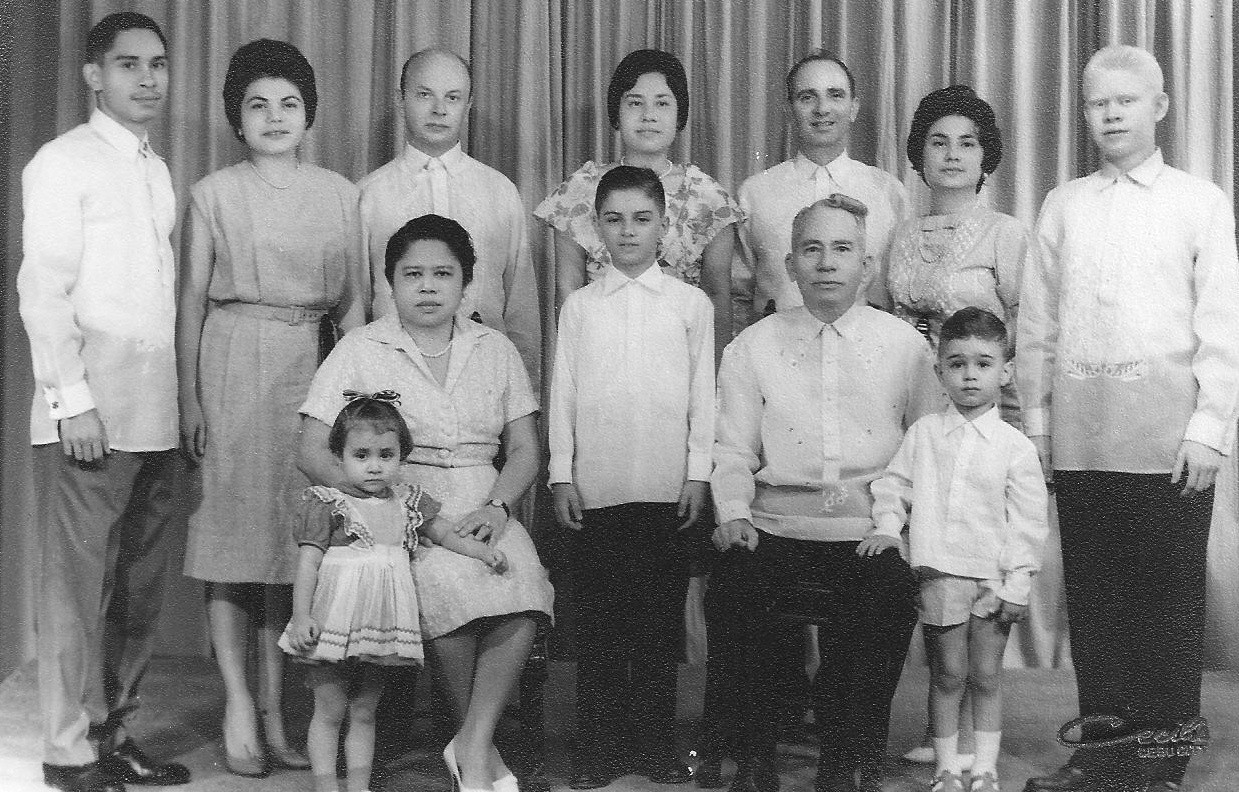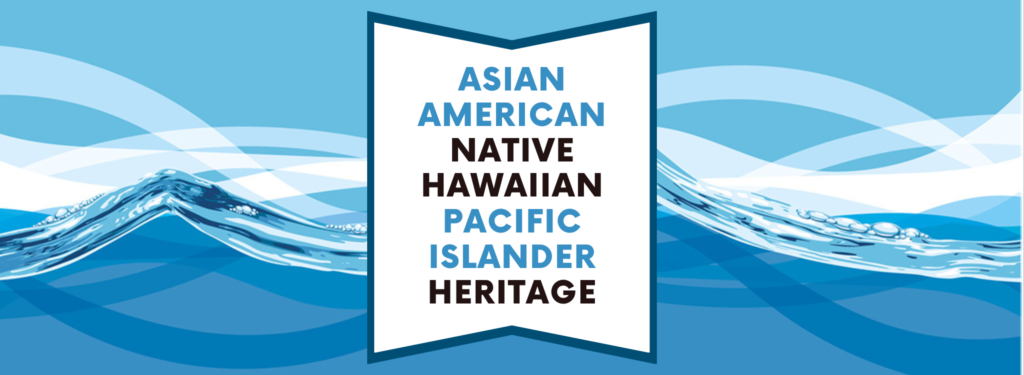
In honor of Asian American, Native Hawaiian, and Pacific Islander Heritage Month this May, we want to hear from YOU!
AA or NHPI PWAs, we invite you to share your experiences and how your heritage and albinism impact your life. Photos, videos, artwork, writing, or something else – we welcome anything you’d like to share with the community.
Please send submissions to eaubrey@albinism.org for the opportunity to be featured on NOAH social media and website throughout the month of May and beyond!
Gabriel Alvarez
AN AGING ALBINO AND HIS ASIAN ROOTS – by Gabriel C Alvarez
I just celebrated my 79th birthday last month. As I reflect on the years that I have earned and enjoyed, I cannot stop wondering what a wonderful life journey it has been for me. I was born on April 12, 1946, in Cebu City, Philippines, one year after the city was liberated from Japanese occupation during World War II. I am the youngest of five children in my family. My father was of Spanish descent and worked as an accountant and later as a salesman. He was the family’s main breadwinner. My Filipino mother was devoted housewife who tended to the family’s needs. I spent almost half of my years in the Philippines. I finished my elementary and high school years in Cebu. Having an education was a priority in my family. I learned early that my visual disability was not a hindrance to learning. My teachers were very supportive yet demanded excellence. I discovered two significant talents growing up: my love for music and my talent for public speaking. My mother encouraged me to take piano and voice lessons until the end of my high school years. I later developed the skill of music improvisation and was a self-taught guitar player captivated by my renowned pop idol, Elvis Presley. Listening to music was my favorite pastime and amassing a commendable record and CD collection was my hobby. One high school teacher discovered my talent for public speaking and oratory. This was surprising and unexpected for me. I was a shy person mainly due to my obvious physical trait of being an albino and I avoided public exposure. Nonetheless, I was encouraged to participate in an oratorical contest in my school, and to my amazement, I won first place. That eventually resulted in a regional competition winning first place, and eventually in a national competition held in Manila winning third place. I became a celebrity of sorts among my high school classmates and friends. These gifts have remained with me throughout my life. My prowess in public speaking became an asset when I chose the teaching profession. My shyness and inhibitions aroused my interest in studying human behavior. Gaining my independence and leaving the comforts of home were vital to my adult development and self-confidence. I graduated from a prestigious university in Manila in 1967 majoring in the Behavioral Sciences. I returned to my home city to teach at my high school alma mater for two years. I then decided to pursue my graduate studies in Sociology at the same university where I graduated. My desire to continue my graduate studies in the US was fulfilled when I was awarded a Fulbright-Hays grant and a Ford Foundation scholarship to continue my graduate studies. I obtained my PhD in Sociology from the University of Chicago in 1975. Thereafter, I resumed teaching and was a university professor in the Philippines, Singapore, and, eventually, the US. I likewise was involved in doing research work on immigration, social indicators of development, child poverty, and the demography of the aging population. I am presently retired after twenty-eight years of teaching and doing research work. At this point in my life, I decided to write a book about my life experience highlighting the challenges I faced with albinism.
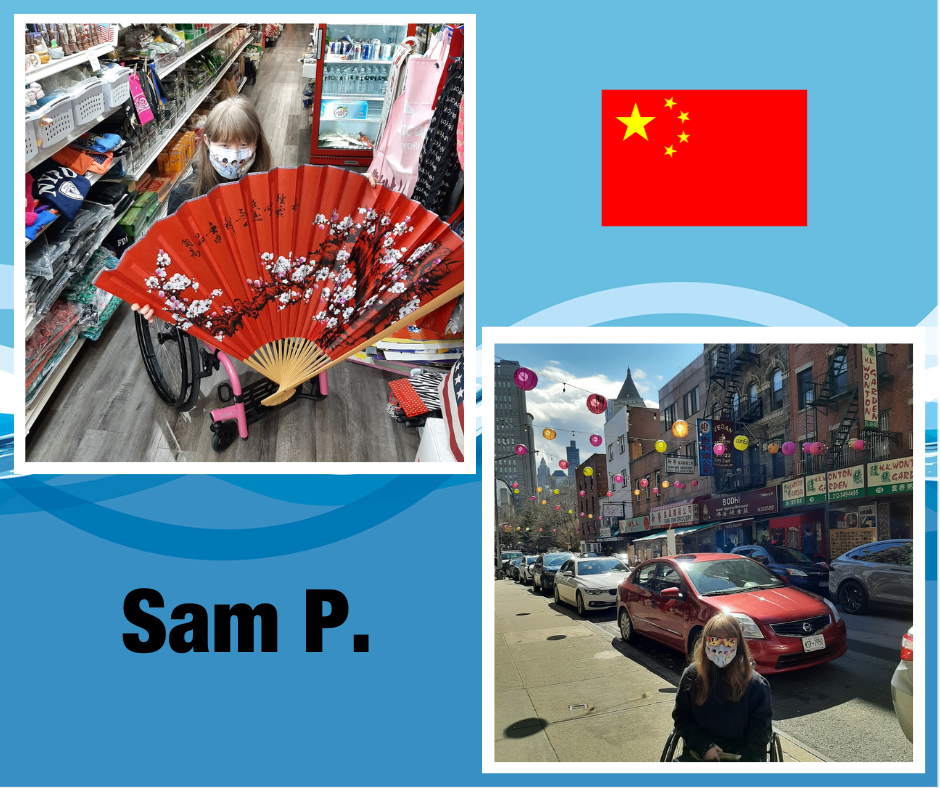
Sam P.
NOAH community member, Sam P., “proudly represents 🇨🇳 (Chinese flag), and states that her albinism makes her feel ‘Asian undercover.'”
Lindsey M.
My name is Lindsey, and I am a Kanaka Maoli (Native Hawaiian) with Albinism (OCA2).
I love being Hawaiian. I dance hula. I speak ʻŌlelo Hawaiʻi (the native language of the Hawaiian people). Although I live on the continent/don’t live in Hawai’i, I advocate for mālama ‘āina (taking care of the land) and for the return of Hawaiian sovereignty. I am the second person in my family to have albinism, so I am not completely alone in the experience, but I would love to meet more Hawaiians with albinism to know how they live with the two identities. My low vision, sensitivity to light, and the amount of time my skin can take in the sun can make it difficult to be an “islander” that finds enjoyment, respite, and spiritual connection when being in nature. In hula, being lōkahi (moving in unison, oneness, and looking the same) is important, so standing out because of my albinism/how I look can feel like a negative thing, but I tell myself that being in hula/traditionally Hawaiian spaces exactly as I am starts conversations, brings awareness, and encourages acceptance of difference(s). I’m a Hawaiian with Albinism hula dancer, and that makes me really unique!
